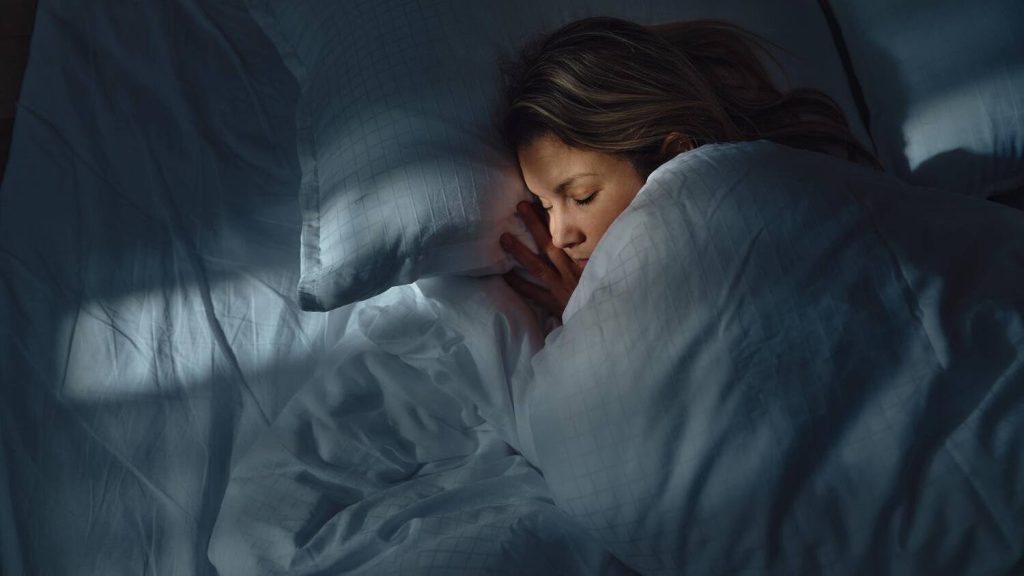-
Mayo Clinic Q and A: Can a supplement help you sleep?

DEAR MAYO CLINIC: I often struggle to fall asleep at night, and then I have difficulty staying asleep. This pattern tends to occur more in the springtime. A friend suggested I try melatonin. Are there any side effects to worry about with melatonin use? Are there other things I can do to help get more rest?
ANSWER: Getting a good night's sleep is important. It can be frustrating when you struggle to fall and stay asleep.Work, household responsibilities and family commitments sometimes take priority over sleep. Factor in a partner's snoring or unexpected challenges, such as financial worries or an illness, and quality sleep might be even more elusive.
While there are many self-care things you can do to improve your sleep, over-the-counter sleep aids, including melatonin supplements, may be valuable.
Melatonin is a hormone naturally produced by your body, which plays a role in the sleep-wake cycle. Your body's melatonin levels increase as darkness approaches, peak during the night and decrease as dawn arrives. Certain things can throw off this cycle. For instance, being exposed to light when you'd normally be sleeping — like during shift work — can affect this rhythm. Chronic illnesses, increased age and medications also can decrease melatonin production.
Melatonin supplements may be helpful for people who have trouble sleeping, in part because they may increase low levels of melatonin. In these people, research suggests that melatonin supplements can:
- Reduce the time it takes to fall asleep.
- Increase total sleep time.
- Improve the quality of sleep.
One study found that a relatively low, over-the-counter dose of melatonin was enough to improve nighttime sleep without added drowsiness the next day. Some research suggests that melatonin supplements also may provide some relief from insomnia and jet lag.
Melatonin is considered fairly safe in the short term. Although some people may experience daytime sleepiness and tiredness after waking, the supplement has fewer side effects than prescription sleep drugs. Melatonin doesn't cause dependence, for example.
The most common melatonin side effects include:
- Headache
- Dizziness
- Nausea
- Daytime drowsiness
Other, less common melatonin side effects might include:
- Vivid dreams or nightmares
- Short-term feelings of depression
- Irritability
- Stomach cramps
- Diarrhea
- Constipation
- Decreased appetite
- Urinary incontinence at night
- Increased risk of falls
- Increased risk of seizures
- Confusion or disorientation
- Mood swings
- Reduced alertness
If you're considering taking a melatonin supplement, talk with your health care professional to decide what dose is right for you. This is also important since melatonin can interact with certain drugs, including those commonly used to prevent seizures and manage high blood pressure, diabetes and immunosuppressants. Your health care team may recommend adjusting your medication or supplement dosages for the best effects.
Also keep in mind that, as with any supplement, melatonin shouldn't be the first or only remedy you use to try to resolve a health concern such as insomnia. It needs to be coupled with lifestyle choices that create a solid foundation for good health, including good nutrition, daily exercise and good sleep practices.
Consider these tips that can help with your sleep habits:
- Stick to a schedule. Go to bed and get up at the same time every day, including weekends. Being consistent reinforces your body's sleep-wake cycle.
- Pay attention to what you eat and drink before bed. Don't go to bed hungry or stuffed. Avoid heavy or large meals within a few hours of bedtime. And limit the intake of nicotine, caffeine and alcohol, as the effects can interfere with sleep.
- Create a restful environment by keeping your bedroom cool, dark and quiet. Consider using room-darkening shades, earplugs, a fan, or other devices to keep your room cool, dark and quiet. Exposure to light in the evenings might make it more challenging to fall asleep.
- Additionally, limit technology use because prolonged exposure to screens can be disruptive. Instead, focus on calming activities before bedtime, such as taking a bath, meditation or journaling, which can help ease anxiety and promote better sleep.
If you are still struggling to sleep after trying melatonin or are experiencing other challenges, speak with your health care team about a sleep study. — Compiled by Mayo Clinic staff
****************************
Related Articles
- 5 ways to get better sleep published 3/9/23
- Mayo Clinic Minute: Are you getting enough sleep for your best heart health? published 2/20/23
- Mayo Clinic Minute: What to consider before using melatonin supplements for sleep published 2/22/22







